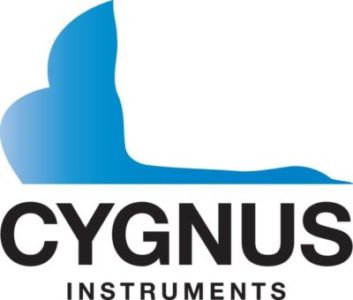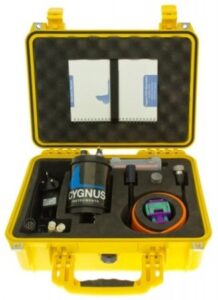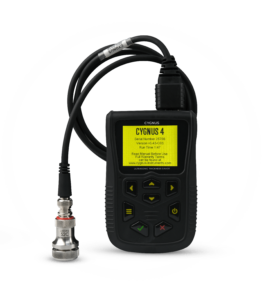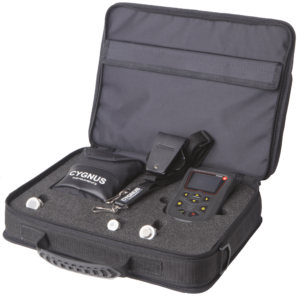Ultrasonic Thickness Gauge Aluminium
Welcome to Cygnus Instruments, a trusted provider of an ultrasonic thickness gauge aluminium, available for various industries. With years of experience in the field, we pride ourselves on delivering top-quality products at affordable prices. Whether you require accurate measurements for aluminium structures or other materials, our ultrasonic thickness gauges offer the reliability and precision you need.
At Cygnus Instruments, we understand the importance of reliable and efficient inspection equipment. That’s why we have dedicated ourselves to designing and manufacturing ultrasonic thickness gauges that meet the highest industry standards. Our products are renowned for their durability, accuracy, and user-friendly interface, ensuring that you can carry out your inspections with confidence.
Our team consists of fully qualified engineers who possess extensive knowledge and expertise in ultrasonic technology. They are ready to assist you in selecting the right ultrasonic thickness gauge for your specific requirements. Our commitment to customer satisfaction drives us to provide excellent technical support and guidance throughout your purchasing journey.
Don’t miss the opportunity to experience the superior quality of our ultrasonic thickness gauges. Contact us today on 01305 265 533 to speak with our friendly and knowledgeable team. Let Cygnus Instruments be your trusted partner in achieving precise and reliable measurements for your projects.
Components of Ultrasonic Thickness Gauges
When it comes to ultrasonic thickness gauges, understanding their components is crucial for informed purchasing decisions. At Cygnus Instruments, we offer a wide range of ultrasonic thickness gauges designed for accurate measurements, specifically for aluminium materials.
The core of an ultrasonic thickness gauge lies in its ultrasonic technology. These gauges emit high-frequency sound waves into the material being tested, which then reflect back upon encountering a boundary or interface. By measuring the time it takes for the pulse to return, the gauge calculates the material’s thickness.
The gauge itself is a handheld device featuring a display screen, control buttons, and various options. It also includes a probe, or transducer, which emits and receives the ultrasonic pulses. The probe ensures precise and consistent measurements.
To accommodate different materials and surfaces, ultrasonic thickness gauges often come with interchangeable probe tips or adaptors. These accessories ensure optimal coupling between the gauge and the material, resulting in reliable results.
Advanced features, such as data logging, on-screen analysis, and connectivity options for data transfer, are available on many ultrasonic thickness gauges.
When working with aluminium, it is crucial to select a specialised ultrasonic thickness gauge tailored for accurate measurements on this material, taking into account its unique properties.
Importance of Monitoring Thickness in Aluminium Structures
Monitoring the thickness of aluminium structures is of paramount importance for ensuring safety, efficiency, and longevity. Whether it’s in industrial settings, construction projects, or marine applications, maintaining the optimal thickness of aluminium components is crucial for structural integrity.
Aluminium structures are susceptible to various factors that can affect their thickness over time. Corrosion, erosion, mechanical stress, and environmental conditions can all lead to thinning of the material. Regular monitoring of the thickness allows for early detection of any degradation, enabling timely maintenance or repairs.
By utilising ultrasonic thickness gauges specifically designed for aluminium, accurate and reliable measurements can be obtained. These gauges employ ultrasonic technology to non-destructively measure the thickness of aluminium structures. This method provides precise results without the need for invasive procedures.
Monitoring the thickness of aluminium structures helps prevent potential failures, such as structural collapses or material breaches. By identifying areas with reduced thickness, proactive measures can be taken to reinforce or replace affected components.
Furthermore, monitoring thickness plays a vital role in optimising performance and efficiency. Thicker aluminium structures can better withstand the applied loads and perform their intended functions efficiently.
Maintaining Ultrasonic Thickness Gauges
Maintaining your ultrasonic thickness gauge is vital to ensure its optimal performance and longevity. At Cygnus Instruments, we understand the importance of keeping your inspection tool in top shape, especially when working with materials like aluminium.
Regular maintenance helps to maintain the accuracy and reliability of your ultrasonic thickness gauge. It is essential to keep the probe clean and free from debris or contaminants that can interfere with the ultrasonic signal. Regularly inspecting and cleaning the probe ensures accurate measurements and consistent results.
Calibration is another crucial aspect of maintenance. Over time, ultrasonic thickness gauges may require recalibration to maintain their accuracy. It is recommended to have your gauge calibrated at regular intervals by a qualified technician or using a calibration block specifically designed for the gauge.
Battery maintenance is essential to ensure uninterrupted operation. Regularly check the battery level and recharge or replace it as needed to avoid downtime during inspections.
Proper storage is also important for maintaining the longevity of your ultrasonic thickness gauge. Keep it in a clean, dry, and safe environment when not in use to prevent damage and ensure its readiness for future inspections.
Working Principle of Ultrasonic Thickness Gauges
Understanding the working principle of ultrasonic thickness gauges is crucial for users seeking accurate measurements, particularly for aluminium materials. At Cygnus Instruments, we offer a wide range of ultrasonic thickness gauges that rely on this principle to deliver reliable results.
The working principle of ultrasonic thickness gauges revolves around ultrasonic technology. These gauges emit high-frequency sound waves, often above the range of human hearing, into the material being measured. These waves travel through the material and reflect back when they encounter a boundary or interface.
By measuring the time it takes for the ultrasonic pulse to return, the gauge can determine the thickness of the material. The speed of sound in the material is a known constant, allowing the gauge to calculate the distance travelled based on the time taken for the pulse to bounce back.
The working principle of ultrasonic thickness gauges ensures accurate measurements on various materials, including aluminium. Understanding this principle helps users utilise the gauge effectively, ensuring proper calibration and correct interpretation of measurement readings.
Advantages of Using Ultrasonic Thickness Gauges for Aluminium
Using ultrasonic thickness gauges specifically designed for aluminium materials offers numerous advantages for accurate measurements and efficient inspections. At Cygnus Instruments, we understand the importance of these advantages and provide high-quality ultrasonic thickness gauges tailored for aluminium applications. Let’s explore the key benefits of using these gauges.
- Precision: Ultrasonic thickness gauges deliver precise measurements, allowing you to assess the thickness of aluminium materials with exceptional accuracy. This is vital for ensuring structural integrity and identifying any signs of corrosion or thinning.
- Non-destructive testing: Ultrasonic technology enables non-destructive testing, meaning you can measure the thickness of aluminium without causing damage or altering the material’s properties. This is especially crucial in industries where preserving the integrity of structures is paramount.
- Versatility: Ultrasonic thickness gauges are versatile tools that can be used on various forms of aluminium, including sheets, pipes, and tanks. They offer flexibility in measuring thickness across different surfaces and materials.
- Efficiency: These gauges provide quick and efficient measurements, saving valuable time during inspections. The user-friendly interface and intuitive controls contribute to enhanced productivity.
- Cost-effectiveness: By accurately assessing the thickness of aluminium, ultrasonic thickness gauges help prevent unnecessary repairs or replacements. This cost-effective approach ensures efficient asset management and reduces maintenance expenses.
- Portability: Many ultrasonic thickness gauges are compact and lightweight, allowing for easy portability and on-site measurements. This mobility facilitates inspections in different locations and environments.
Techniques of Ultrasonic Thickness Gauges
Ultrasonic thickness gauges utilise various techniques to provide accurate measurements, particularly for aluminium materials. At Cygnus Instruments, we offer a range of ultrasonic thickness gauges that employ advanced techniques to ensure precise results.
The Pulse-Echo Technique is the fundamental technique employed by ultrasonic thickness gauges. It involves sending an ultrasonic pulse into the material and measuring the time it takes for the pulse to bounce back. By knowing the velocity of sound in the material, the gauge can calculate the material’s thickness.
The Multiple-Echo Technique is especially useful for measuring the thickness of metals with protective coatings. It utilises multiple echoes generated by the boundaries within the material, enabling accurate measurements without requiring coating removal.
With the Echo-Echo Technique, the gauge measures the thickness of a material through a painted or coated surface. By utilising two closely spaced pulses, the gauge can eliminate the thickness of the coating and provide a measurement of the base material.
Time-of-Flight Diffraction (TOFD) is a technique commonly used for detecting flaws in welds. It utilises diffracted sound waves to accurately determine the position and size of flaws, ensuring the integrity of the welded joints.
Best Practices for Accurate and Reliable Aluminium Thickness Measurements
When it comes to conducting accurate and reliable aluminium thickness measurements, following best practices is essential. With the right techniques and tools, such as an ultrasonic thickness gauge specifically designed for aluminium, you can ensure precise results.
First and foremost, it is crucial to select a high-quality ultrasonic thickness gauge that is specifically calibrated for aluminium materials. These gauges are designed to account for the unique properties of aluminium and provide accurate measurements.
Before taking measurements, ensure that the surface of the aluminium material is clean and free from any dirt, debris, or corrosion. A clean surface allows for better acoustic coupling between the probe and the material, leading to more accurate readings.
Proper probe placement is also critical for accurate measurements. Ensure that the probe is in direct contact with the aluminium surface
and that it is perpendicular to the surface being measured. This helps to minimise any air gaps or misalignment that can affect the accuracy of the measurements.
When taking measurements, it is recommended to take multiple readings at different locations on the aluminium material. This helps to account for any variations in thickness and provides a more comprehensive understanding of the overall thickness profile.
Regular calibration of the ultrasonic thickness gauge is essential to maintain accuracy. Calibration should be performed according to the manufacturer’s recommendations or industry standards to ensure reliable measurements.
Why Choose Us?
When it comes to selecting the best company for your ultrasonic thickness gauge needs, Cygnus Instruments stands out as a trusted choice. Our commitment to providing top-quality products and exceptional customer service sets us apart from the competition.
At Cygnus Instruments, we offer a wide range of ultrasonic thickness gauges specifically designed for accurate measurements on various materials, including aluminium. Our gauges utilise advanced ultrasonic technology, ensuring precise results and reliable performance.
With years of experience in the industry, our fully qualified engineers are ready to assist you in selecting the perfect ultrasonic thickness gauge for your specific requirements. We take pride in offering competitive prices without compromising on quality.
Contact Us
Ready to take the next step in acquiring your ultrasonic thickness gauge for aluminium? Contact Cygnus Instruments today to discuss your requirements and find the perfect solution.
You can reach us directly by phone on 01305 265 533. Our knowledgeable and friendly team is available to answer your questions and guide you through the selection process. Whether you need assistance in choosing the right gauge model or have questions about pricing and availability, we’re here to help.
Alternatively, you can use our convenient online contact form or send an email to sales@cygnus-instruments.com. We’ll respond promptly to assist you further.





